With both North and South Korea in the World Cup for the first time, many on this war-divided peninsula were hoping that sports could cross the border and unite people.
The feeling was so strong that some South Korean lawmakers even proposed to send a united group of fans to South Africa to support both Korean teams.
But the sinking of a South Korean warship in March has shattered the mood and heightened tensions between the two nations, turning the World Cup into a missed opportunity less than a month before the games start.
With Seoul expected to accuse the North Korea of firing a torpedo that sank the Southern ship, a diplomatic push to haul the North before the U.N. Security Council seems likely to follow.
It’s a far different feeling than in 1966, when North Korea made its last appearance in the World Cup and — despite Cold War tensions — won over fans in Britain and elsewhere. The lightly regarded North Koreans produced a famous upset, eliminating Italy to advance to the quarterfinals.
They took a 3-0 lead against Portugal, but the Portuguese — led by the legendary Eusebio — surged back with five goals to put an end to the North Koreans’ fairy-tale run.
A lot has changed for the Koreas in the four decades since that tournament.
Back then, the North had a stronger economy than the struggling South, and even their boots were the envy of the South Korean team.
Today, the cash-strapped North relies on handouts to feed its people, while the South boasts the world’s 15th largest economy.
Sanctions for its nuclear defiance have further strained the North and earned pariah status for the regime led by Kim Jong Il.
Footage from 1966 shows the North Koreans interacting playfully with their newfound English fans as they wave and sign autographs, even bouncing local kids on their knees.
In the years since, the regime has closed ranks and tightened its control over the population of 24 million. Few are allowed to leave the country, and those who do travel abroad — even the World Cup squad — are closely supervised by North Korean officials.
Soccer could be one way to reach out to the North Koreans and break down political walls, said the former South Korean foreign minister, Han Sung-joo, citing the “Ping-Pong diplomacy” that between the U.S. and China in the 1970s.
North Korea and South Korea remain locked in a state of war because they never signed a peace treaty at the close of the three-year Korean War in 1953. Sports, however, has been one arena where both sides have made fledgling efforts at reconciliation.
At the 2000 Summer Olympics, athletes from the two Koreas walked into Stadium Australia together under a “unification flag” to an emotional standing ovation. Hopes were high that the Koreas might eventually field a united team.
Last year, the blue-and-white unity flag fluttered in the packed stands at the World Cup Stadium in Seoul as North Korea played the South, with the home team’s exuberant fans cheering for both squads.
Han, who now heads South Korea’s bid to host the World Cup in 2022, has a bold vision for the Koreas if the South wins: He wants to hold three or four games in North Korea.
“It would be a good opportunity to bring North Korea into the mainstream,” he said. “Right now, North Korea is fairly isolated, and there’s still hatred between North and South Korea. This will contribute to both peace and the integration of Koreans both in North and South Korea.”
Jong Tae Se, a North Korean striker , said holding World Cup games in the North would be “historic.”
“It would be beyond our wildest dreams, and I would be happy and all Korean people would be happy,” Jong, who was born and raised in Japan but holds a North Korean passport, said last month.
For now, North Korea’s hopes rest with the World Cup squad, the most visible ambassadors the nation has had in decades.
Fans lined the streets to bid the men farewell, waving North Korean flags and bouquets for players known at home as “The Dagger,” “the Warrior” and “the Bulldozer.”
“After 44 years, our players are going to the World Cup, and the North Korean people have great expectations of them,” Pyongyang resident Chon Sung Won told broadcaster APTN in the North Korean capital.
But they face a daunting lineup: North Korea’s group contains Brazil, Portugal and the Ivory Coast.
The North Koreans are tough and disciplined, but only Jong and two others play for clubs abroad; the rest are virtually unknown to the outside world.
And the tensions with the South may cost North Korean fans the chance to see their team play.
In the past, the South Korean government has covered the cost to beam World Cup footage to the North by satellite.
Last year, the South Korean broadcaster SBS began the tricky process of negotiating with Pyongyang — by fax from Beijing — to offer the footage in exchange for access to the North Korean team.
“The ship sinking in March put a heavy strain on inter-Korean relations, leading to a standstill in negotiations,” said Yang Cheol-hoon, head of the broadcaster’s inter-Korean cooperation department.
Even in better times, North Koreans rarely were able to watch a full match, defectors say. Highlights of select games are shown on tape delay on North Korea’s one channel, said a woman who defected from the North last year and now lives in Seoul.
In one filmmaker’s imagination, World Cup fever makes it as least as far as the Demilitarized Zone. Kye Yoon-shik recalled the frenzy on the streets of Seoul when South Korea co-hosted the event with Japan in 2002.
“Thousands of people dressed in red, boulevards blocked off and the whole country coming together to cheer for the soccer team — I couldn’t help but wonder, ‘What’s going on on the other side of the border?”’ he said. “Did they watch the games at all? Were they cheering for us?”
In his film “Dreams Come True,” to be released next week, North Korean soldiers posted to the DMZ rig up illicit broadcasts of South Korea’s historic advance to the semifinals in 2002.
“This movie shows that we’re one people; it shows the Korean people’s love for one another,” Kye said.
And who will he support when the World Cup begins? “It’s not every day that both Koreas make the World Cup,” he said. “Of course I’ll be cheering for the North Koreans.”

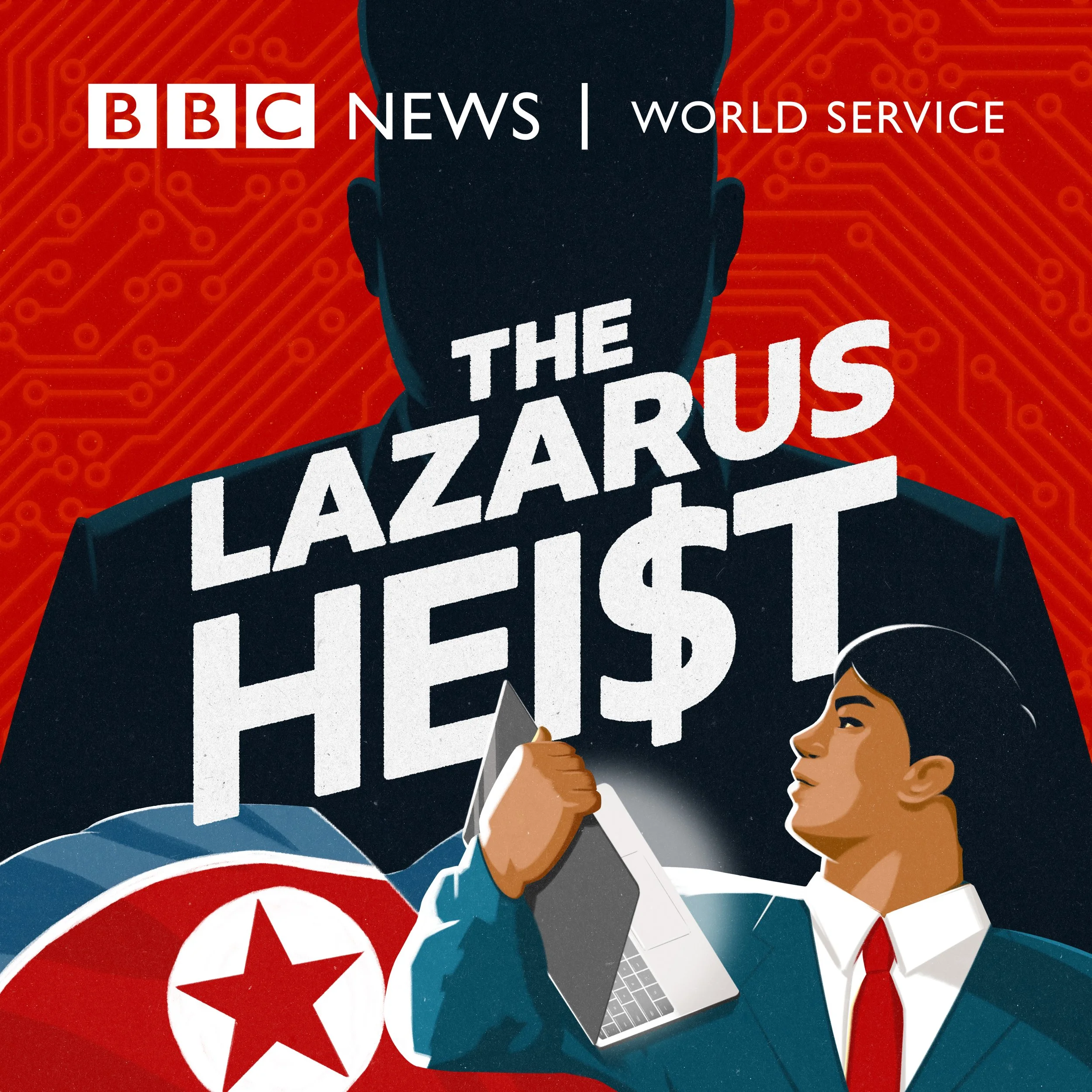

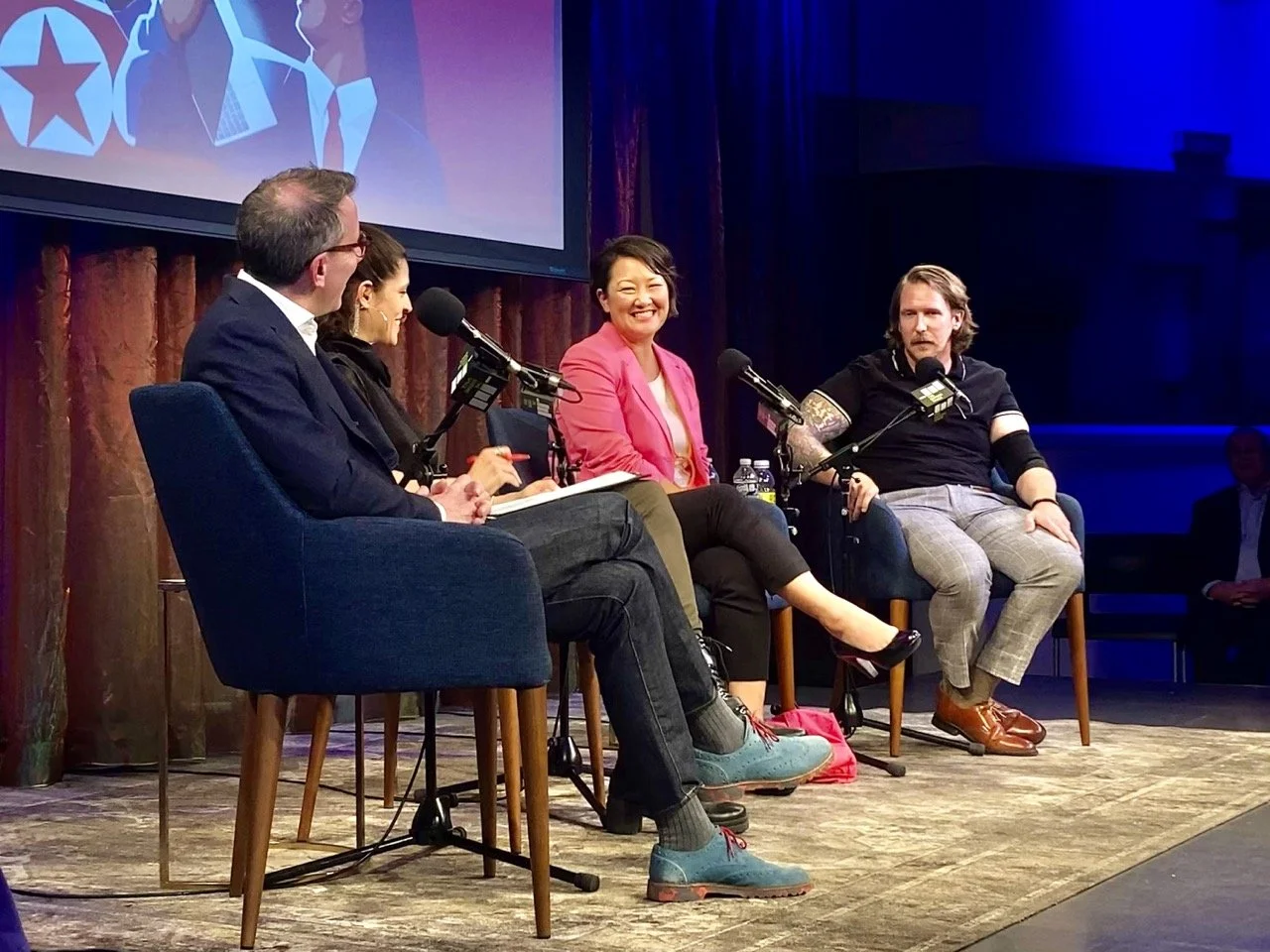
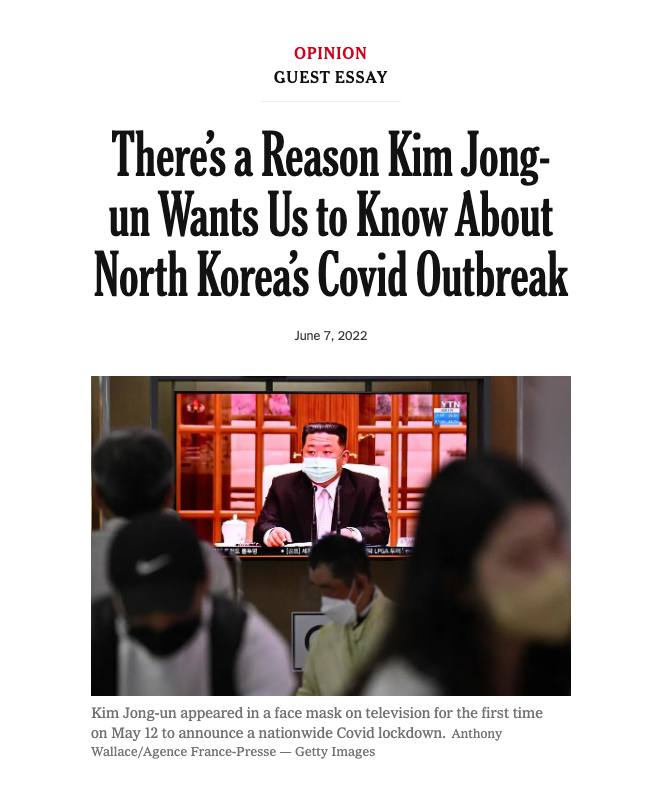

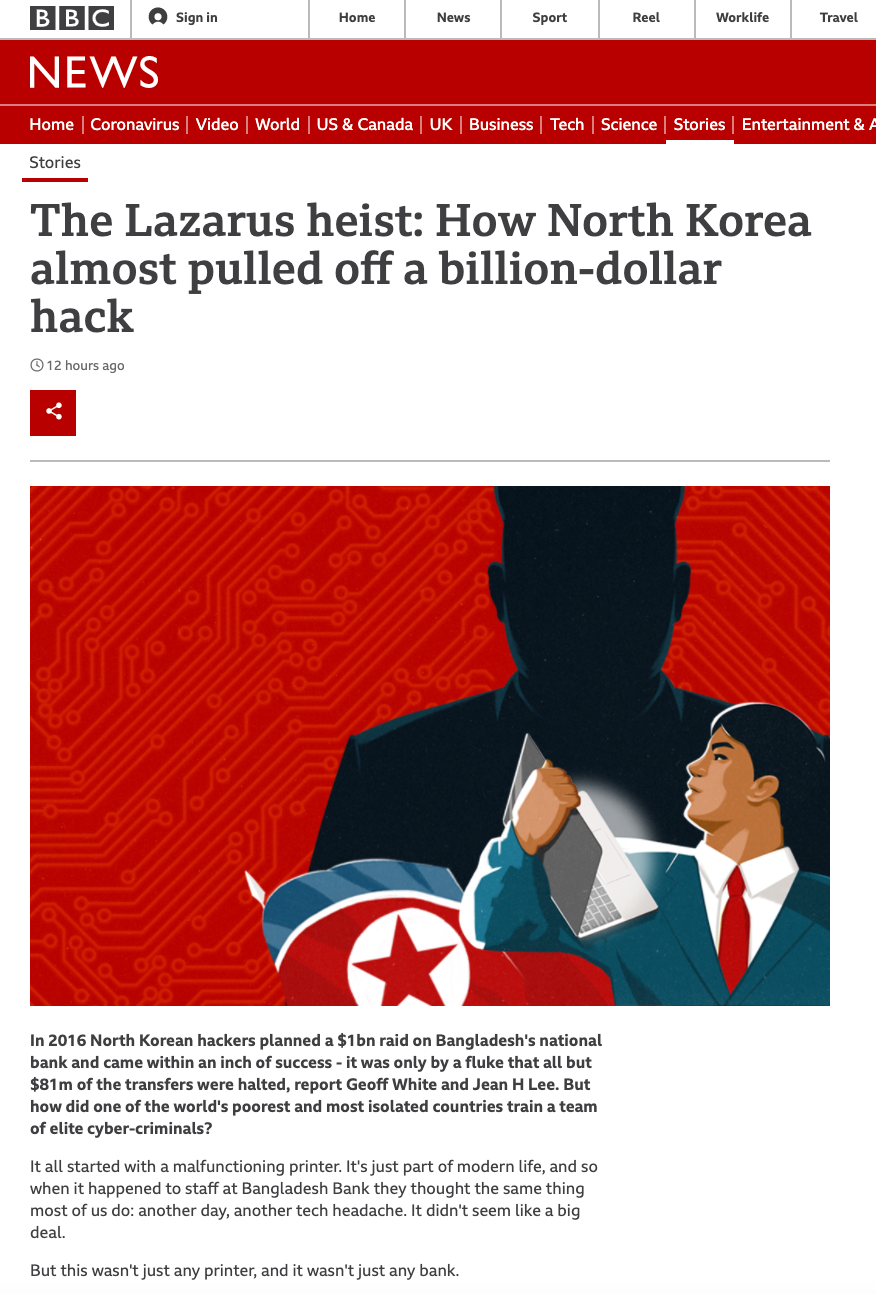
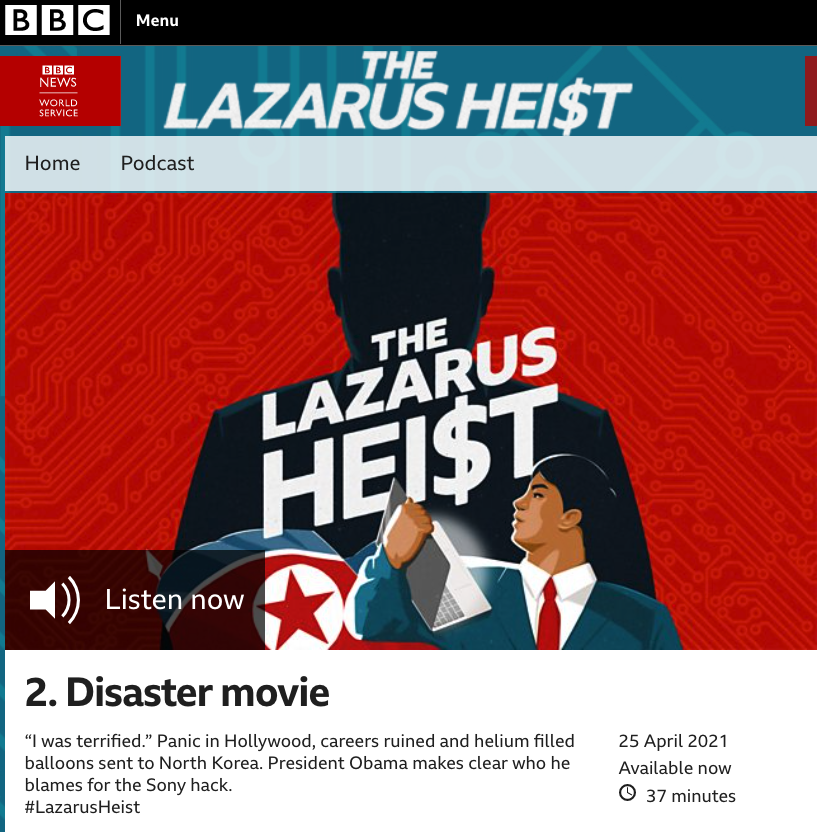












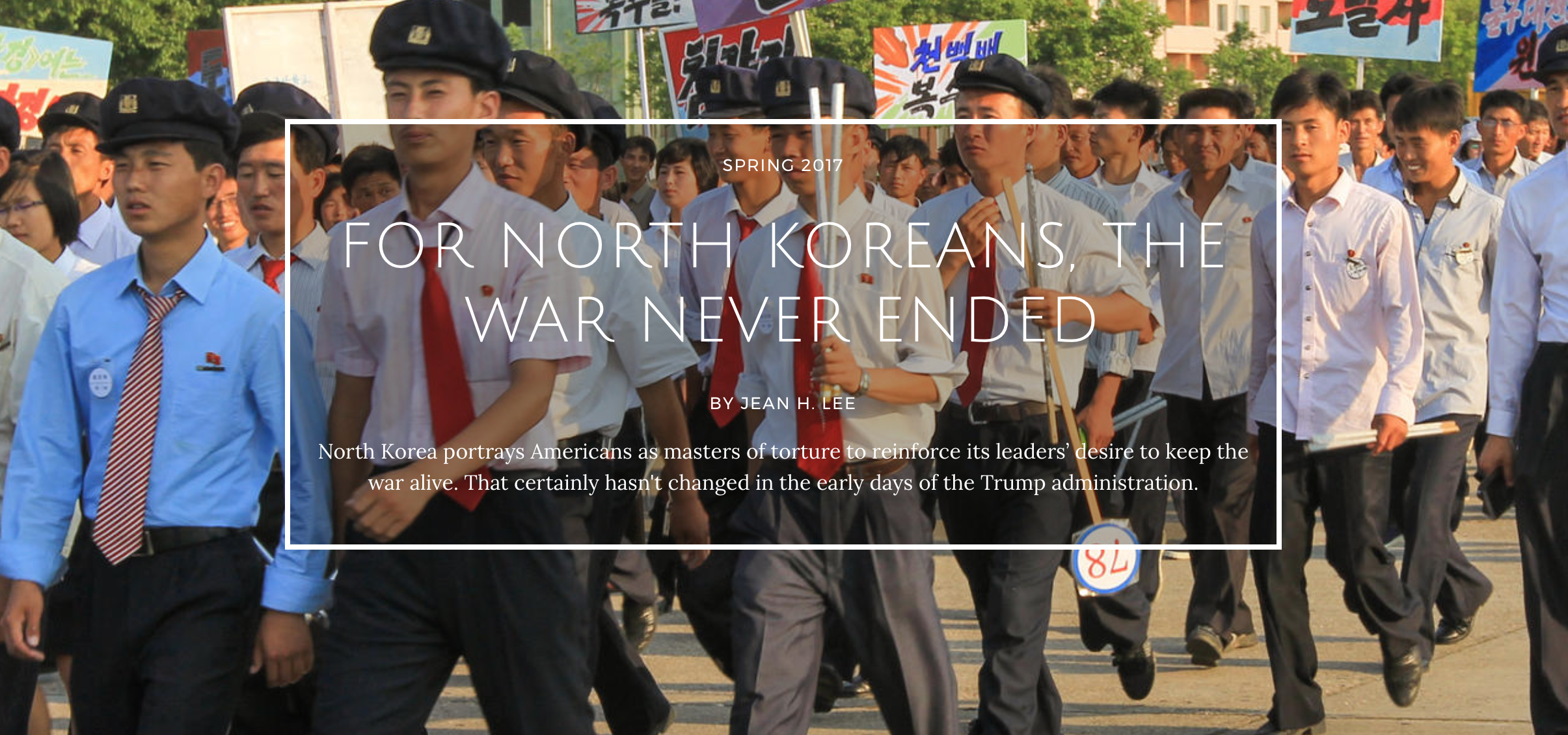


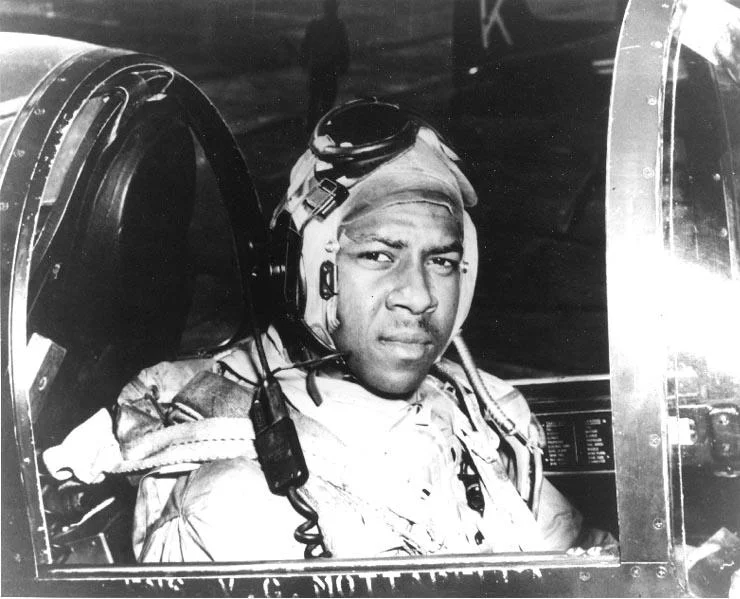
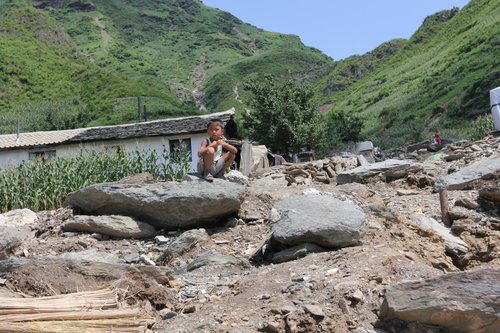




Download all episodes of The Lazarus Heist, watch Lazarus Heist animations, read our feature story about the hackers and view visualizations of the podcast episodes on Lazarus Heist homepage on the BBC World Service website!